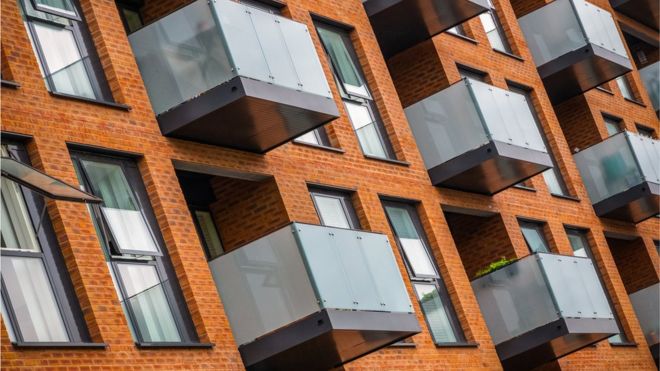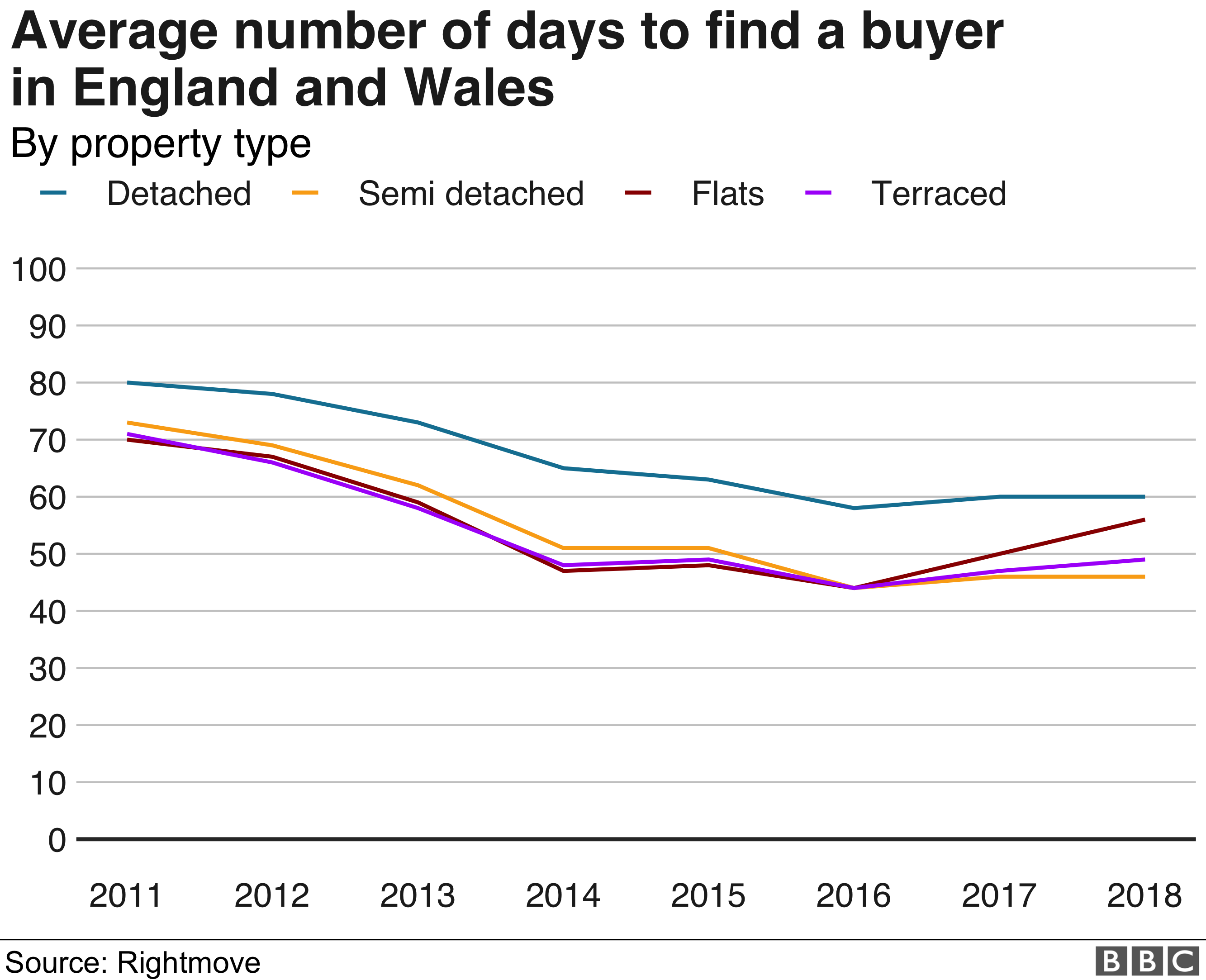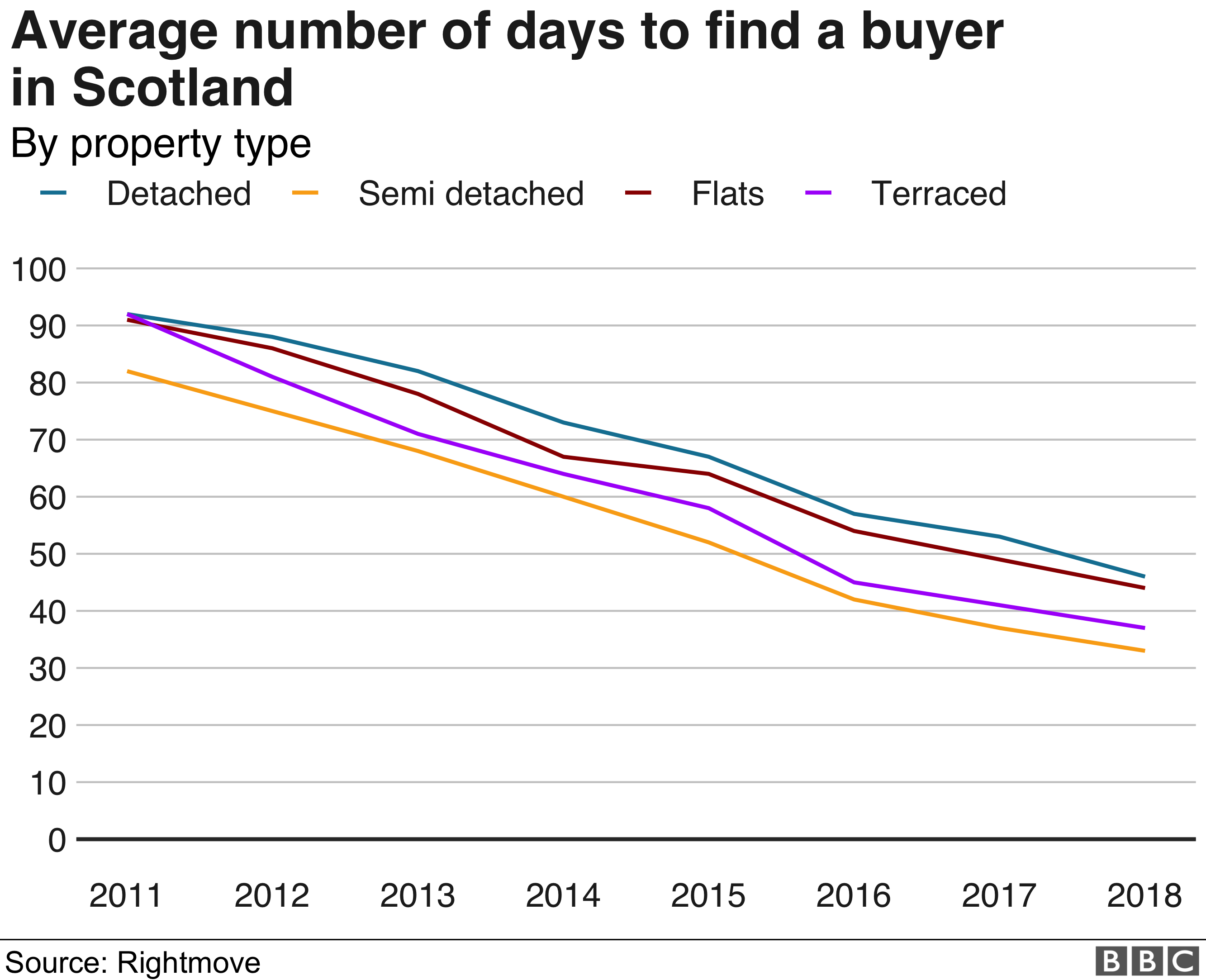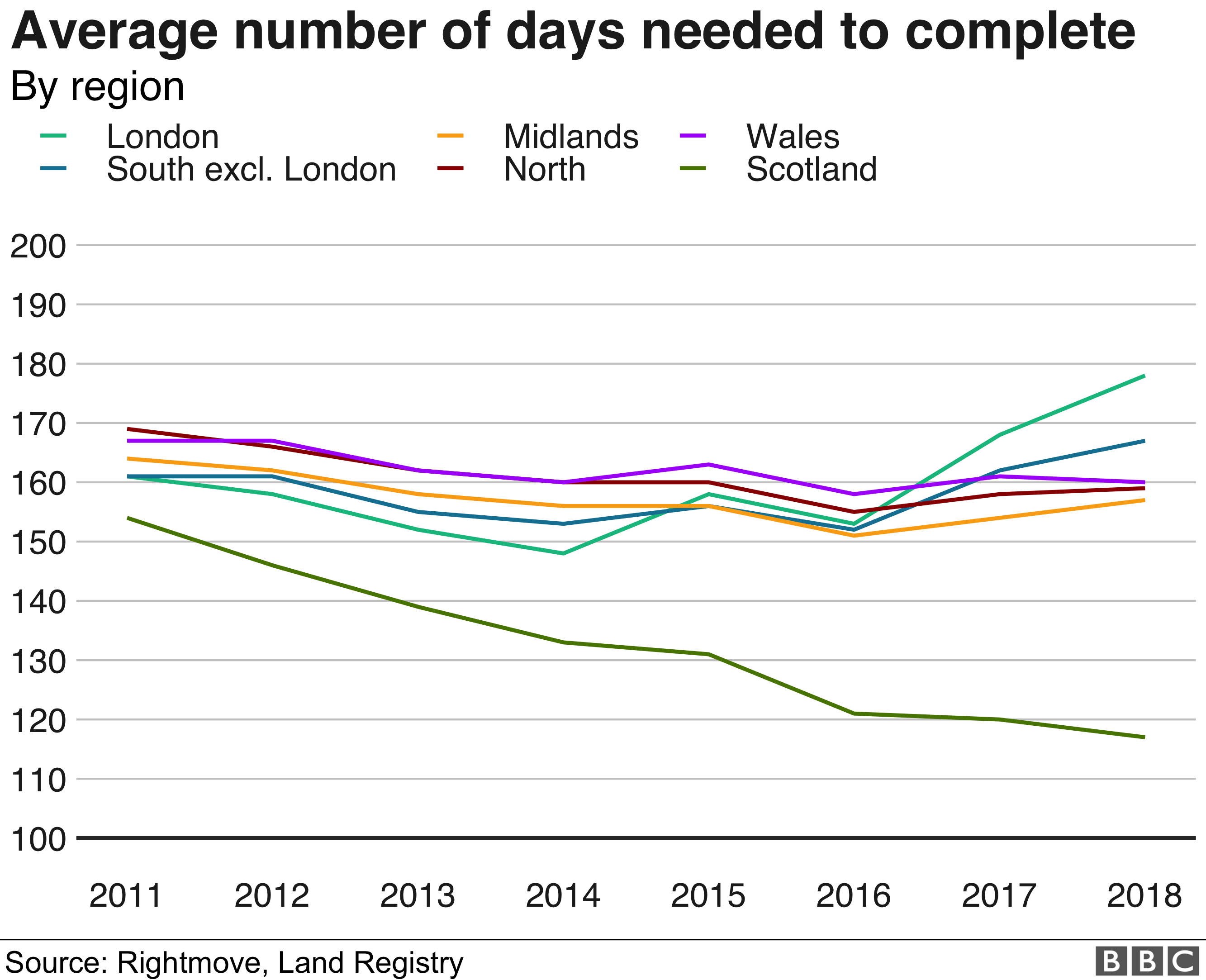Home buyers 'move faster in Scotland but slower in London'
 GETTY IMAGES
GETTY IMAGES
Scotland has replaced London as the fastest place for a seller to find a buyer for their home, figures suggest.
In 2014, it took 36 days in London on average to secure a buyer, but this rose to 60 days by last year, according to property portal Rightmove.
In contrast, the average time to secure a buyer fell from 66 days to 41 days over the same period in Scotland.
The figures, compiled for the BBC, show that the market for flats has slowed amid debate over leasehold rules.
'Not just Brexit'
Various surveys have shown that the property market has slowed in London and the South East of England in recent years, with prices falling particularly in London.
House prices on average across the UK are still rising slightly, but there has been a significant drop in London.
The latest figures, based on Rightmove data, show that the time taken between initially marketing a home and an estate agent finding a buyer has been rising in the region, returning to the 60-day average in London last seen in 2011.
"Whilst it would be easy to link that with the Brexit vote, there are other factors at play, especially increasingly stretched buyer affordability," said Miles Shipside, Rightmove's housing market analyst.
One of those factors is the increasing amount of time taken by the sellers of flats to find a buyer in England and Wales.

Changes in taxation have led to a drop in the demand from buy-to-let investors, many of whom had built up a portfolio of apartments.
Another theory is that the Bank of Mum and Dad has helped some first-time buyers to move straight into houses, instead of flats, with the added attraction of some outside space and their own front door.
The debate over leaseholds, which are more common among flats, may also be significant. It may also explain the difference with Scotland, where so-called hidden costs are far less of an issue and where the time to find a buyer of any type of property has been falling.

Kate Faulkner, housing analyst and managing director of Propertychecklists.co.uk, said that sellers needed to be well prepared if they wanted a swift sale of a flat.
She suggested:
- Making sure sellers are clear with potential buyers about the time remaining on the lease, service charges and ground rent
- Ensuring paperwork preparations are made for the leasehold management pack, which can cost money and take time to complete
- Using solicitors who are well-versed in the rules and information needed when a leasehold property is sold.
Sellers of older flats were also in competition with a host of new-build developments, which might include access to restaurants and gyms, she added.
She suggested being realistic when setting a price, considering throwing the property open to offers over a certain price, and showing off the space available inside the flat.
"De-clutter and de-personalise as much as possible. Show off the space and give people a blank canvas to imagine living there," she said.
- Flats out of fashion with first-time buyers
- 'We've been caught in a leasehold trap'
- Letting fees ban: Renters confused after change in law
Once a buyer has been secured, the legal process and the checks required by mortgage lenders have become stricter and taken longer since the financial crisis. Greater regulation has slowed these down for many people.
As a result, Mr Shipside, of Rightmove, said that buyers looking for a property now might be over-optimistic if they expected to celebrate Christmas in their new home in England or Wales.

"This is most noticeable for those buying flats, where conveyancing times have increased from 100 days in 2011 to 123 days in 2018 in England and Wales," he said.
"That means those buyers who have an offer accepted on a flat this month may not complete until the end of the year, especially if they'll be getting a mortgage."